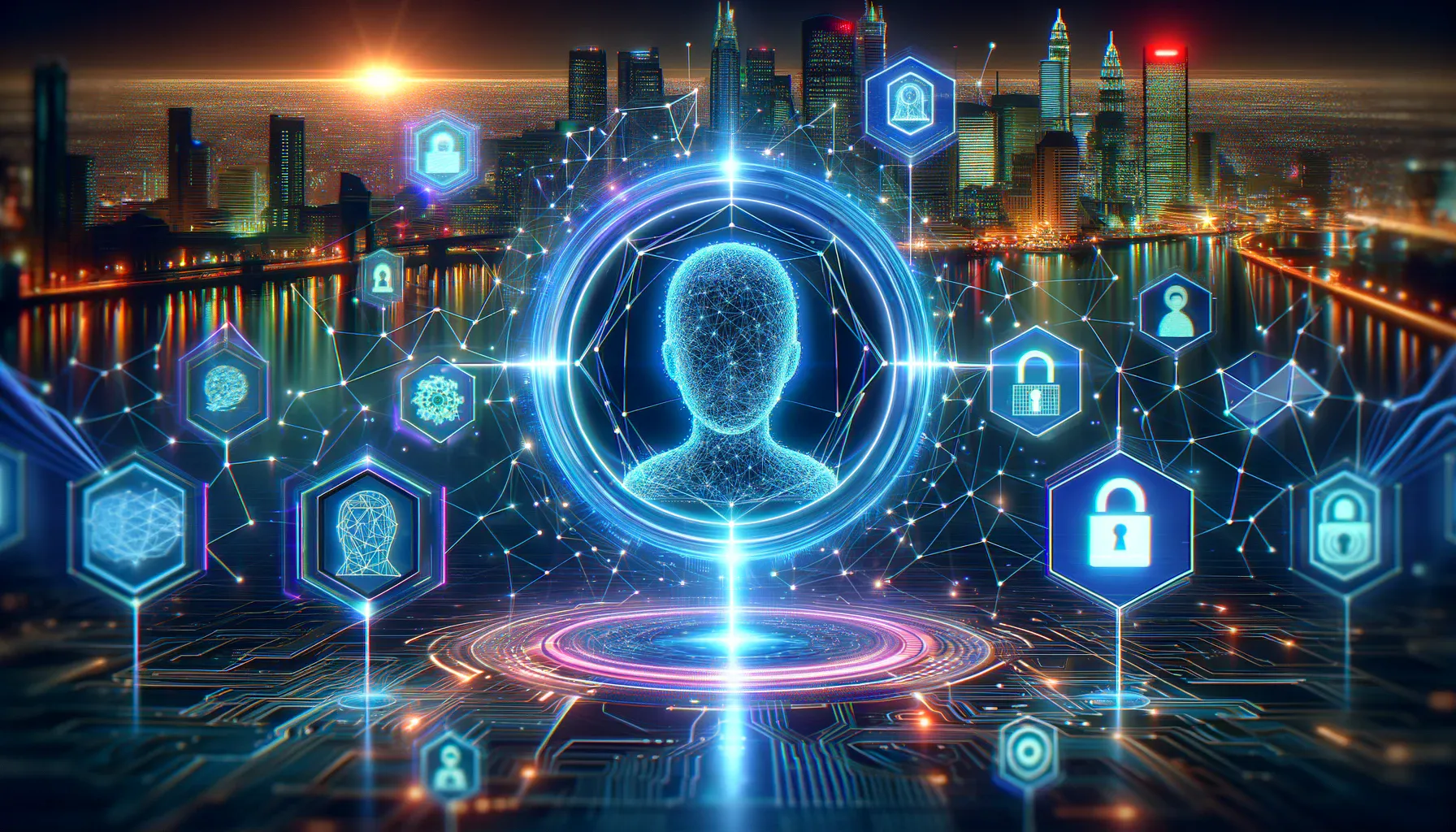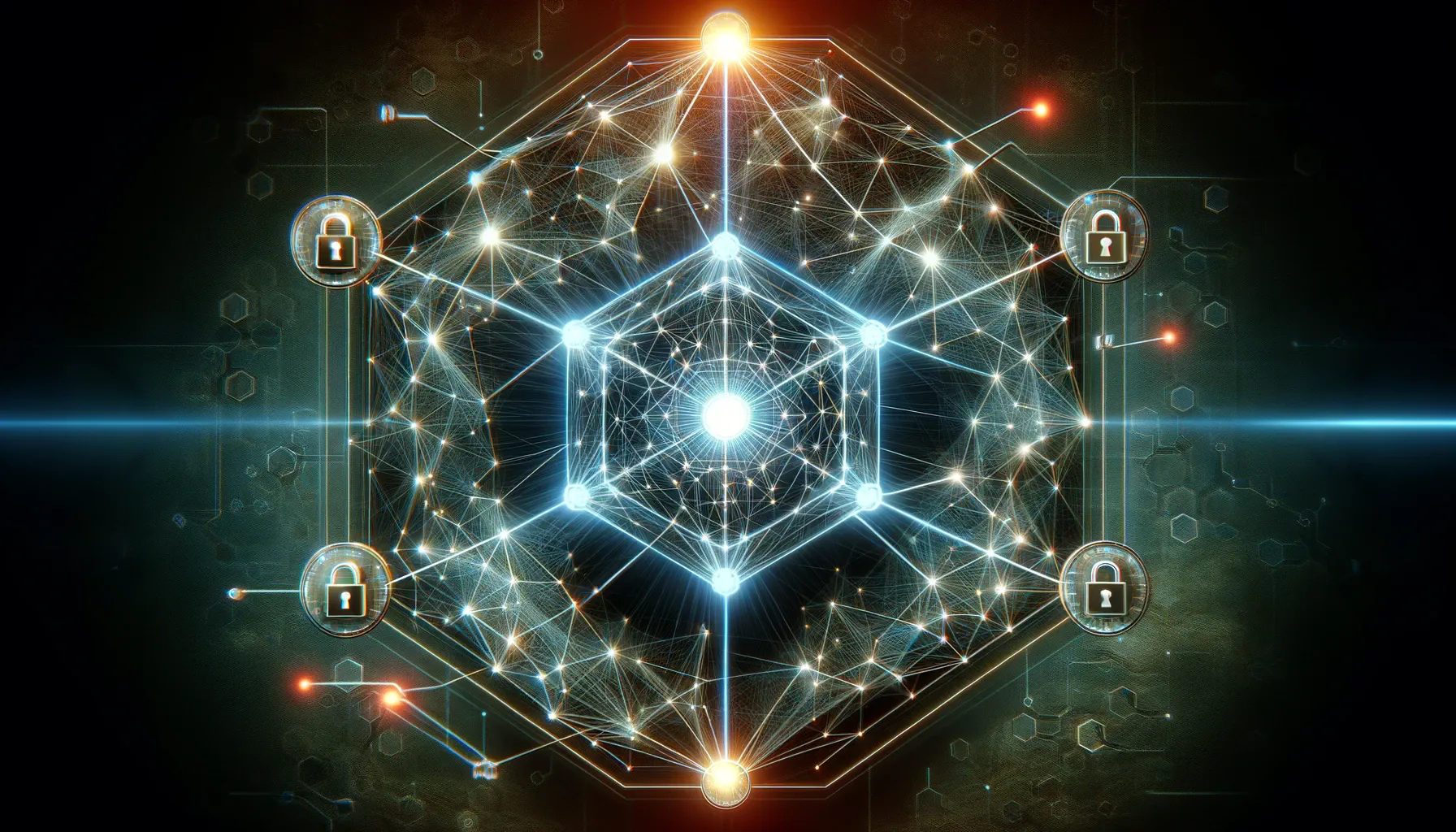Table of Contents
In an increasingly digitized world, the traditional paradigms of identity and trust are undergoing a profound transformation. The advent of blockchain technology and decentralized systems has given rise to the concept of self-sovereign identity, marking a significant shift from centralized authorities to individual empowerment. This paradigm shift is often referred to as the “Trust Revolution,” where trust is not just a commodity but a fundamental pillar of the digital landscape.
1. The Trust Revolution Unveiled

The Evolution of Trust: Trust, a fundamental element of human interactions, has undergone a transformative journey from offline to online realms. The digital era, however, brought forth challenges like data breaches, identity theft, and centralized control, prompting the need for a Trust Revolution. This revolution seeks to redefine how trust is established and sustained in the vast landscape of the internet.
In recent years, companies like Equifax have faced significant data breaches, compromising the personal information of millions. Such incidents highlight the vulnerabilities of centralized systems in safeguarding sensitive data. The Trust Revolution aims to address these challenges by introducing innovative approaches to identity and trust.
The Essence of Self-Sovereign Identity: At the core of the Trust Revolution is the revolutionary concept of self-sovereign identity (SSI). Traditionally, personal information was stored and controlled by central entities, creating single points of failure susceptible to cyber threats. In contrast, SSI empowers individuals to own, control, and share their identity information autonomously.
A notable illustration of self-sovereign identity in action is Sovrin. Sovrin is an open-source project that utilizes blockchain technology to establish a global public utility for SSI. By providing a decentralized platform, Sovrin enables users to manage their digital identities securely, reducing the risk of unauthorized access and data manipulation.
2. Unpacking Self-Sovereign Identity
Blockchain Technology and Trust Assurance: Blockchain technology forms the bedrock of self-sovereign identity (SSI), introducing unprecedented levels of trust assurance in digital interactions. One notable illustration is the Sovrin Network, an open-source project designed for decentralized identity. Sovrin employs a permissioned blockchain, where trusted entities known as stewards validate transactions. This ensures that the information stored within the blockchain is secure, tamper-proof, and resistant to unauthorized changes.

User-Centric Control:
The Trust Revolution champions a shift from centralized control to user-centric control, a paradigmatic leap that gives individuals unprecedented authority over their data. Microsoft’s decentralized identity initiative, known as Microsoft Identity, demonstrates this shift. Microsoft Identity is built on the principles of self-sovereign identity, allowing users to control access to their digital identity and personal information.
With Microsoft Identity, users can determine who has access to their data and for how long. This granular control over information sharing represents a fundamental change in the dynamics of digital trust, placing the user at the center of decision-making regarding their own identity.
Interoperability and Seamless Experiences: Self-sovereign identity’s promise of interoperability is exemplified by projects like uPort. Uport is an identity platform built on the Ethereum blockchain that enables users to carry their digital identity seamlessly across various applications and services. Through uPort, individuals can avoid the need for repeated verifications on different platforms, streamlining the user experience.
For instance, Imagine registering for a financial service using your uPort digital identity and later seamlessly using the same identity to access a healthcare application or an educational platform. This level of interoperability not only enhances user convenience but also reduces friction in processes, fostering a more interconnected and efficient digital ecosystem.
3. The Trust Revolution in Action
Decentralized Identity Projects: Decentralized identity projects are at the forefront of the Trust Revolution, offering innovative solutions to reshape how we perceive and manage identity in the digital age. In the vanguard of this Trust Revolution, these projects leverage blockchain technology and self-sovereign identity principles to fundamentally transform the way trust is established and maintained in the online landscape.

Sovrin:
- Overview: Sovrin is an open-source, global public utility for self-sovereign identity. It operates on a permissioned blockchain, emphasizing security and privacy.
- Features: Sovrin allows individuals to have a digital identity that they control, enabling secure and verifiable interactions without the need for a central authority.
- Real-world Impact: Organizations and individuals leveraging Sovrin can conduct transactions, share information, and engage in digital interactions with enhanced trust and privacy
Government Initiatives: Governments worldwide are increasingly recognizing the potential benefits of self-sovereign identity in catalyzing the Trust Revolution. This acknowledgment is paving the way for the seamless integration of these innovative solutions into mainstream governance structures, promising more secure, efficient, and trustworthy public services.
Estonia:
- Overview: Estonia is renowned for its advanced digital infrastructure, and it has been at the forefront of exploring blockchain-based identity solutions.
- Initiatives: The e-Estonia project, for instance, has implemented blockchain technology to secure health records and e-residency programs, giving individuals more control over their data.
- Real-world Impact: The Estonian government’s adoption of decentralized identity elements has enhanced the efficiency of public services, reducing bureaucratic hurdles and providing a more secure and user-friendly experience for citizens.
4. Navigating Challenges in Trust Revolution
Security Concerns: Navigating the Perils of Self-Sovereign Identity
While the concept of self-sovereign identity (SSI) promises to be a cornerstone in the Trust Revolution, offering enhanced security, it is not immune to challenges that demand careful consideration and ongoing vigilance. Key areas of concern within the Trust Revolution include the safeguarding of private keys, protection against phishing attacks, and the identification and mitigation of potential vulnerabilities in the underlying technology. As we navigate this transformative era, ensuring the resilience of SSI becomes paramount to maintaining the trust that is foundational to the ongoing Trust Revolution.
Ensuring Private Key Security: Private keys are the linchpin of self-sovereign identity, serving as the digital credentials that authenticate individuals. Companies must implement robust measures to safeguard private keys against unauthorized access.
- Ledger: Ledger is a company specializing in hardware wallets for cryptocurrency storage. By providing an extra layer of security through offline storage of private keys, Ledger mitigates the risk of digital attacks targeting these critical components.
- Trezor: Similar to Ledger, Trezor is another company offering hardware wallets. Their devices keep private keys offline, reducing exposure to online threats. Both Ledger and Trezor showcase the importance of hardware-based solutions in bolstering the security of private keys.
Phishing Attack Prevention: Phishing attacks remain a pervasive threat in the digital landscape. Ensuring that users can distinguish legitimate requests from malicious ones is crucial. Companies are implementing innovative solutions to address this challenge:
- MetaMask: MetaMask, a popular cryptocurrency wallet and gateway to decentralized applications (DApps) educates users about phishing risks. The platform actively promotes security practices, such as verifying website URLs, to prevent users from falling victim to phishing attacks.
- MyEtherWallet (MEW): MEW, a user-friendly interface for managing Ethereum wallets, incorporates educational features to warn users about potential phishing attempts. These proactive measures contribute to a safer user experience within the self-sovereign identity ecosystem.
Addressing Technological Vulnerabilities: The underlying technology supporting self-sovereign identity systems must undergo continuous scrutiny to identify and address potential vulnerabilities. Companies and organizations engaged in the development of SSI solutions prioritize robustness and resilience:
- Hyperledger Indy: Hyperledger Indy, an open-source project within the Linux Foundation, focuses on providing tools and libraries for creating self-sovereign identity systems. The community-driven approach ensures ongoing audits and improvements to the codebase, addressing potential vulnerabilities collaboratively.
- Microsoft Identity Platform: Microsoft is actively involved in the development of decentralized identity solutions. The Microsoft Identity Platform leverages blockchain technology to enhance security and privacy. The company consistently releases updates, patches, and best practices to fortify the platform against emerging threats.
5. Legal and Regulatory Landscape: Charting a Course Through Uncertainty
As the Trust Revolution gains momentum, the legal and regulatory landscape becomes a critical factor influencing the widespread adoption of self-sovereign identity. Governments and regulatory bodies must adapt to ensure that legal frameworks align with the decentralized nature of SSI while safeguarding individual rights.
Estonia’s e-Residency Program:
Estonia has been at the forefront of embracing digital innovation, including the exploration of self-sovereign identity. Through its e-Residency program, Estonia allows individuals worldwide to access its digital services remotely. The government has been proactive in adapting its legal framework to accommodate decentralized technologies while ensuring the security and privacy of e-residents.
Global Legal Initiatives:
Various countries are considering or implementing legal initiatives to pave the way for self-sovereign identity. For instance:
- Canada: The Canadian government has been exploring the use of blockchain technology for identity management. Initiatives like the Pan-Canadian Trust Framework (PCTF) aim to establish a standardized approach to digital identity, acknowledging the importance of decentralized solutions.
- Switzerland: In Switzerland, the city of Zug, known as “Crypto Valley,” has been experimenting with blockchain-based identity systems. The Swiss government’s recognition of blockchain’s potential has led to discussions on adapting regulations to support the development and adoption of decentralized identity solutions.
Regulatory Challenges and Considerations:
The evolving nature of self-sovereign identity introduces regulatory challenges that necessitate careful navigation:
- GDPR Compliance: Adhering to the General Data Protection Regulation (GDPR) in the European Union is a crucial consideration for companies in the self-sovereign identity space. Solutions must respect individuals’ rights to privacy and data protection, aligning with the principles set forth by GDPR.
- Smart Contracts and Legal Validity: The use of smart contracts, a key component of many decentralized identity systems, raises questions about their legal validity. As these technologies become more prevalent, regulatory frameworks must adapt to recognize and accommodate the unique aspects of self-sovereign identity transactions.

6. The Future of Trust
Global Impact: The Trust Revolution, driven by self-sovereign identity (SSI), holds immense promise in reshaping the fundamental dynamics of societies globally. This transformation is particularly evident in sectors that heavily rely on trust, transparency, and secure data management.
Financial Transactions: Blockchain-based SSI can revolutionize the financial landscape by providing a secure and transparent framework for transactions. Companies like Ripple, through their blockchain solutions, aim to transform cross-border payments by enhancing security and reducing transaction costs. Individuals and businesses alike stand to benefit from a more efficient and trustworthy financial ecosystem.
Healthcare Records: In the healthcare sector, SSI can play a pivotal role in securing and managing patient data. MedRec, a decentralized healthcare data management project, explores the potential of blockchain to provide patients with control over their medical records. This not only ensures privacy but also facilitates seamless sharing of health information with authorized parties.
Supply Chain Management: Companies like IBM are exploring blockchain-based solutions, such as IBM Food Trust, to enhance transparency in the food supply chain. By integrating self-sovereign identity, participants in the supply chain can have authenticated and traceable identities, mitigating the risk of fraud and ensuring the quality and safety of products.
7. Empowering Individuals
Control Over Digital Identities: At the core of the Trust Revolution is the empowerment of individuals. Self-sovereign identity ensures that trust is not a commodity controlled by corporations but a fundamental right granted to individuals. This empowerment has transformative implications across social, economic, and political dimensions.
Social Impact: Imagine a world where individuals have control over their online identities, protecting themselves from identity theft and data breaches. This empowerment can lead to increased participation in digital spaces without the fear of privacy invasion. Social platforms that respect and integrate SSI principles can redefine online interactions.
Economic Implications: In the economic sphere, SSI can empower individuals to participate in the digital economy more seamlessly. Decentralized finance (DeFi) platforms, such as those built on Ethereum, exemplify how individuals can have greater control over their financial assets, bypassing traditional intermediaries. This financial inclusivity is a direct result of the empowerment facilitated by self-sovereign identity.

Conclusion
As we stand on the cusp of the Trust Revolution, the power and potential of self-sovereign identity are becoming increasingly evident. Redefining trust in the digital landscape is not just a technological feat but a societal transformation. The shift from centralized control to individual empowerment marks a pivotal moment in the evolution of the internet and how we navigate the vast digital frontier. The journey towards a more trusted and decentralized future has only just begun, and self-sovereign identity is leading the way.